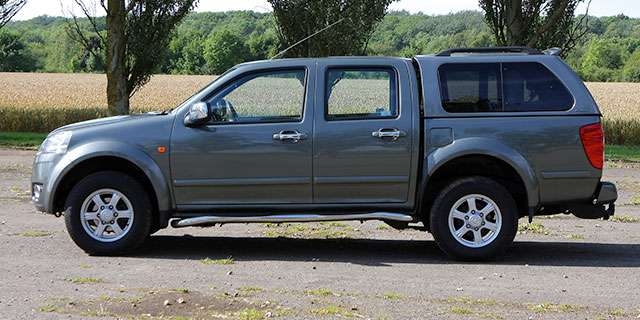Van insurance is different to any other vehicle insurance, which means there’s a wide range of new terms to get to grips with.
We’ve made this glossary to help you understand a little bit more about van insurance.
V5 log book
Your V5 log book is a document that shows the important details about your vehicle, including who the registered keeper is. It’s an important document, especially when selling a vehicle as the details on it need to be changed.
It’s especially important if you’re unsure whether your vehicle is a car or a van, or even a minibus.
Haulage
Haulage commercial van insurance is insurance for the delivery of one item or items over long distances.
The best example of haulage is a large truck that you see on motorways. They’re usually branded and will deliver one shipment to a site and then return back to a delivery centre to stock up again.
Haulage is also a form of commercial van insurance that covers, you guessed it, haulage drivers.
Carriage of goods for hire or reward
Carriage of goods for hire or reward is a form of commercial van insurance. It insures the van should it be involved in an accident during the course of making deliveries.

Carriage of own goods
Carriage of own goods is a form of commercial van insurance. It insures the van to be used to carry the policy holders goods or equipment, for example a builder who drives between jobs with their van full of their own tools.
Minibus
A minibus is classed as a vehicle that can seat between nine and 16 passengers. In your V5 logbook your vehicle will be classed as an M2 vehicle.
If you own a minibus you need specialist minibus insurance, as opposed to a standard van or car insurance policy.
Use
The way you use a vehicle is very important when it comes to getting the right level of insurance cover.
If you get a Social, Domestic and Pleasure policy on a van that you use for work, you may not be able to make a successful claim in the event of an incident occurring because of work. Worse still, your insurance could be cancelled, fines may need to be paid and you could be prosecuted.
It’s doubly important with van and commercial van insurance where there are different types of cover dependent on how you use your van.
Commercial van and business van insurance
Commercial van and business van insurance are the same thing, however when compared to cars, business use is slightly different.
For cars, business use does not include commuting to a place of work. For vans, if you commute to work, you need business or commercial van insurance.
Light Commercial Vehicle (LCV)
A Light Commercial Vehicle or LCV is another term for a van, basically. It refers to vans that weigh 3500kgs (3.5-tonnes) or less, which includes vans like the Ford Transit or the Mercedes Sprinter.
Large Goods Vehicle (LGV) or Heavy Goods Vehicle (HGV)
Large Goods Vehicles (LGV) or Heavy Goods Vehicles (HGV) are those that weigh more than 3500kgs. They are essentially lorries and trucks that you see travelling long distances on motorways.









